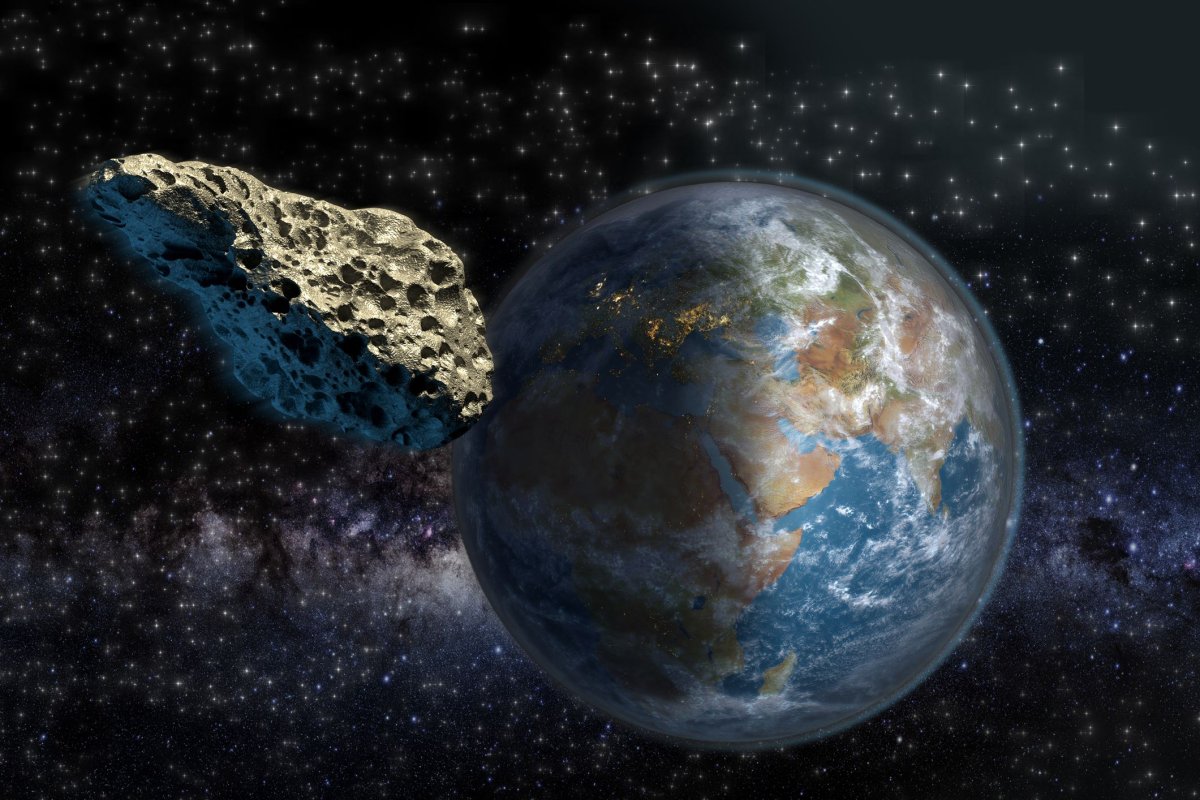There is big money floating around space—so much so we could be on the brink of a cosmic gold rush, with nations across the globe all hoping to cash in. Now, the U.S. Geological Survey (USGS) has said it wants a piece of the action, with the agency saying it has been paying "close attention" to space resources for a number of years.
Laszlo Kestay, a research geologist at the USGS Astrogeology Science Center, told Space.com that as commercial ventures hoping to mine asteroids edge closer to reality, it is the the job of the USGS to get involved. "The USGS realized that our congressional mandate to assess natural resources extends to space," he told the website.
"At this point, we have done enough work to feel confident that the methods the USGS uses to assess mineral, energy and water resources on Earth can be used to assess space resources with minimal modification. We have also done enough preliminary work to identify some areas where humanity's lack of knowledge will result in exceedingly large uncertainties in assessments undertaken today."
The reason space mining could be such a valuable venture is the minerals locked up in bodies like asteroids and the Moon. For example, the Moon is believed to have an abundance of He-3—a light, non-radioactive isotope of helium that is hardly found anywhere on Earth as it is pushed away by the planet's magnetic poles. However, there is estimated to be up to one million tonnes of it on the moon. He-3 could play a vital role in the development of nuclear fusion—which could offer unlimited, cheap clean energy for the planet.
Meanwhile, asteroids are believed to be rich in platinum and gold—precious resources that are becoming increasingly scarce on Earth. As Visual Capitalist noted in 2016, the asteroid belt between Mars and Jupiter is made up of over a million asteroids, with a potential value of up to $700 quintillion.

The USGS does not yet have a funded program for space resource assessment, but "we are anticipating that the USGS may be directed to do so soon, and we are taking a number of steps to be prepared for that possibility," Kestay said.
The possibility of the USGS getting involved in space mining activities has been welcomed by other experts involved in the venture. Angel Abbud-Madrid, director of the Center for Space Resources at the Colorado School of Mines, told Space.com: "The space-resources community will benefit greatly from working together with the USGS to assess the location and value of minerals, energy and water on the moon, Mars and asteroids. [Its involvement] can also lead to reliable and much-needed geological maps for more precise landing-site and resource-deposit selection."
As of yet, no one has worked out how to make space mining cost effective—while the potential payout is huge, the technology needed to get to an asteroid, extract its precious resources and then bring them back to Earth is not commercially viable.
Another question yet to be answered is how involved the USGS could be in space mining. Nations around the world are currently bound by the Outer Space Treaty, which says no government can claim a celestial body for itself: "Outer space, including the Moon and other celestial bodies, is not subject to national appropriation by claim of sovereignty, by means of use or occupation, or by any other means," it says.
There may, however, be a way round this: Private companies. In 2015, a letter from the Federal Aviation Administration to Bigelow Aerospace appeared to show the U.S. government encouraging firms to pursue commercial activities on the Moon.
The legality of space mining remains a sticky subject, however. Frans von der Dunk, professor of space law at the University of Nebraska-Lincoln, told Wired: "At the time the major treaties were developed, the possibility of space mining was not on the horizon. By now in view of the general political climate it is highly unlikely that a treaty carrying the consent of the major spacefaring nations will be achieved."
Uncommon Knowledge
Newsweek is committed to challenging conventional wisdom and finding connections in the search for common ground.
Newsweek is committed to challenging conventional wisdom and finding connections in the search for common ground.
About the writer
Hannah Osborne is Nesweek's Science Editor, based in London, UK. Hannah joined Newsweek in 2017 from IBTimes UK. She is ... Read more
To read how Newsweek uses AI as a newsroom tool, Click here.








